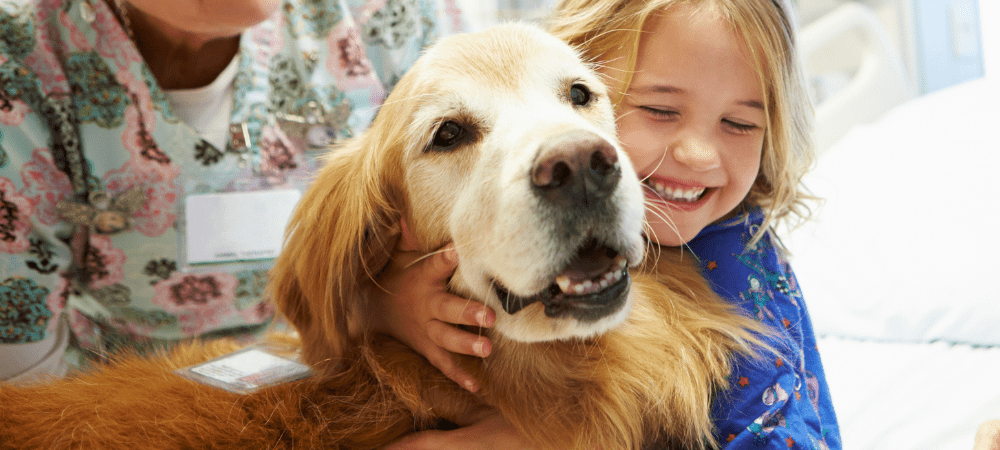The Benefits of Service Dogs for Children with Disabilities

Service animals are specially trained to help people with physical, sensory, psychiatric or intellectual disabilities. Every service dog must meet certain standards and have specific training before they are able to assist people. Beyond being loyal pets and companions, service dogs can also offer safety, comfort and independence. Service dogs can help children with disabilities by providing:
- Comfort: Living with a disability can cause anxiety, isolation, frustration and other challenging emotions. But, the presence of a service dog can drastically help children cope. In fact, studies have shown that being comforted by a dog encourages the release of oxytocin and cortisol that help to reduce blood pressure and relax the body.
- Independence: Service dogs are specifically trained to meet the child’s needs as well as the family’s. For example, a service dog can accompany a child during “scary” medical visits, interrupt self-harming behaviors or pick something up that they have dropped. This allows children to stay safe and be more independent, while increasing their confidence and reducing anxiety for the whole family.
- Empathy and Communication: Dogs are naturally social, loving creatures that provide so much affection and comfort to everyone around them. For children with a service dog, the bond that they develop with their pet, can help them foster relationships with people as well. This can encourage your child to love and empathize, while improving their ability to communicate, laugh, touch and nurture.
- Companionship: Sometimes children with disabilities can develop aggressive behaviors, making it difficult to interact with others and make friends. While a pet is not a substitute for friends, the positive bond and emotional encouragement they receive from their dog can not only provide companionship but also improve their social and verbal skills.
With the right match, service dogs can offer comfort, safety, support, and significantly increase your child’s freedom and independence. For more information on how a service dog can help your loved one, contact the Lions Foundation of Canada Dog Guides.
